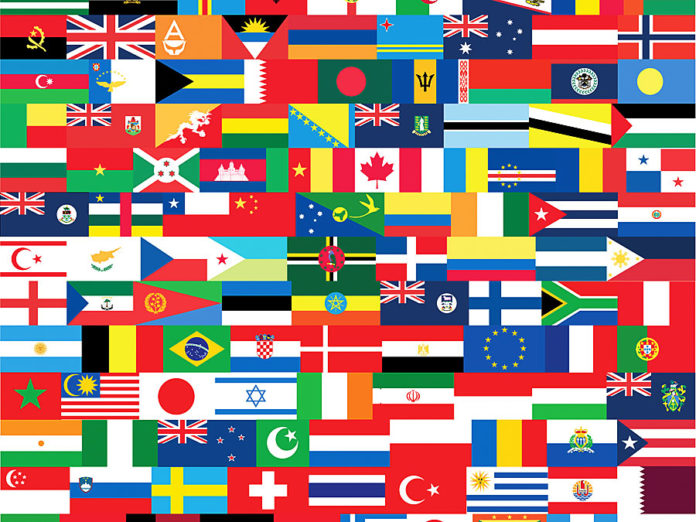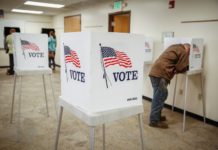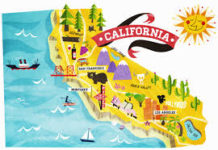As humans, we voluntarily organize ourselves into many groups. We tend to gravitate towards other people that are similar to us or physically near us. Maybe they are groups of people that do the same activities: work, sports, common interests, etc. But what happens when we no longer ‘belong’ to a group that we joined in the past? Let’s dig.
Long ago, proximity was king. Travel was just too difficult. The result: many people stayed generally wherever they were born, with a few nomadic exceptions. A byproduct of that static lifestyle: sharing of local languages, customs, skills, and races. Someone ‘not from around here’ stood out like the proverbial ‘sore thumb’. Towns and cities grew organically, supplanted by birth rates of the locals. Of course, as transportation improved, especially the seafaring methods, diversity occurred. The Polynesians, English, Spanish, French, Portuguese, and many more nationalities, spread out across the globe, mostly in a colonizing nature. Foreign powers, with superior weaponry and armor, conquered the ‘New World’, from current-day Canada to the North, all the way to Cape Horn at the tip of South America. Native races, from the Native American Indians to the Incans, Mayans, and anyone else here prior to the Europeans, were either militarily bested or absorbed into the new cultures—or completely disappeared.
But back to the groups and organizations. Even in Europe, where many countries border many others, there was a commonality among the inhabitants of each country. Language, customs, races, and cultures defined countries as much as the borders. The French were distinctly different from the Germans, who were quite different from the Spanish and the English. Different regions of Italy, with their variety of foods and such, still, the various Italians identified with each other, much more than non-Italians.
The settlers of what became the United States broke many of those molds. People from nearly every country emigrated to America. For some, it was religious freedom, for others, it was the ability to escape caste systems back home, with a chance to become first-time landowners in the ‘New World’. In any case, America was a true ‘melting pot’ of diverse languages, races, and people. Their commonality: the relative freedom that was promised in the US. Exceptions, of course, for all of the folks brought to the US in the slave trade: Blacks from Africa, Irish, Chinese, and many other peoples were brought here involuntarily, or at a minimum as a ‘work the cost of passage for freedom’ type of indentured servitude. The descendants of those slaves certainly garnered the benefits of their ancestors’ slavery, once that practice was ended. Note that from the signing of the Declaration of Independence in 1776 to the end of the Civil War in 1865 was less than 100 years—a very short timespan from an ‘age of country’ standpoint.
In any case, people from everywhere came to the US, with the hope and promise of bettering their and their families’ lives. Immigration was unlimited for decades—if you could make it here, and survive on your own, you were welcome. Since there was no ‘social safety net’, everyone had to eke out whatever life they could build for themselves. In the late 1800s, the US decided to implement a method of alien entry. Mostly due to preventing disease spread, foreign folks were directed to Ellis Island in New York, for processing. From 1892 to 1954, Ellis Island saw over 12 million immigrants to the US processed! Some of the most patriotic Americans were those first-generation immigrants, as they knew first-hand the improvement of their lives from wherever they came from to here. And even though they maintained their customs and languages of their origins, most took it upon themselves to assimilate into the US, both via learning English, and respecting the history and customs of their new homeland. Many served voluntarily in the branches of the United States military—and proudly so. The rugged individualism that started this country was present in many of the new residents. They were PROUD Americans!
Fast forward to today. With the advent of our ‘social safety net’, many new immigrants (legal and otherwise) get free healthcare and primary education. Our Welfare and food support systems are intended for citizens, but that notion is possibly obsolete in reality. There isn’t much of the assimilation of the past, as many cultures prefer the ‘separate but equal’ approach—several pocket communities exist nationwide, where English is the second or third language spoken. There appear to be many folks that have more pride in their country of origin than that of their new home. Again, it is quite a natural phenomenon for people to accumulate where they feel most comfortable, which is often among those that speak and read their language. And many bring the political and economic structures that they fled, even if they know they are the primary reasons to leave their origin countries!
The Balkanization of this country is readily visible, if not our most obvious trait. Sections of New York and California are ‘majority minority’, and happily so. Not to say that the US is adverse to minorities: over 30% of our people are listed as ‘non-white’. Minorities of many stripes own successful businesses, work virtually ALL occupations, and are elected to every possible office in local, State, and Federal politics—including President. But there seems a dramatic unrest among the various peoples here. Whether observed or created by the mainstream media, the drumbeat of ‘racism’ is hard to ignore, as it is a CONSTANT media topic. The education systems are awash with race-based fracturing of their student bodies, such that segregation, illegal everywhere else, is now prevalent in schools.
A strong argument can be made for the productive vs the non-productive in our society as well. Not only are the productive slammed in every media outlet as ‘spoiled, selfish, and greedy’ for wanting to keep as much as they earn as possible, the non-productive are completely without gratitude for the assets they enjoy without earning them.
Another major difference is in how people view the role of government in their lives. Some prefer the ‘less is best’ approach, while others think government is the primary problem-solver of literally any issue. It is natural for government to expand its own view of its importance. Many people prefer that anyone earning more than they do should finance (via taxes) whatever they feel they need or want. New ‘rights’ are sprouting up like weeds, and the new ones seem to require funding mechanisms.
These differences, be they cultural, economic, or simply ideological, make it difficult for all of the views to exist within the same physical boundaries. So, back to the first paragraph of this musing. What holds this current-day United States together as a single country? Other than geography (ocean to ocean, as it were), is there any other commonality the people here share? Language? Customs? Patriotism? Common views of the role of government? IMHO, these differences are becoming MORE divisive than ever before. Is it time to stop postponing the inevitable? Should there be more than one ‘United States’? What once was a silly idea now needs deep consideration.
Welcome!Log into your account

























I have a slightly different spin on this topic. I believe that separation from a government or system you no longer believe in is the right choice. Rome fell not because it was weak militarily but because its people no longer cared for the republic. At one point, the Roman Empire stretched across most of the known world and through conquest, subjugated the weaker nations in the name of “progress”. In the later stages of the Republic, it was made up of disparate peoples and territory who could not care less what happened to Rome and its government. They were happy to break-away at the first opportunity and we are talking about an empire and culture that spanned over a thousand years. The USA has a shared history of only a couple hundred years and the ties that once bound us is now becoming undone.